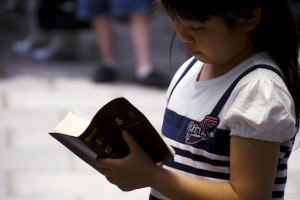The Chinese government has angered Christians after banning the sale of Bibles at online bookstores across the country amid a continuing crackdown on "foreign" religions.
According to Australia's ABC News, copies of the Gospels have been disappearing from online retailers following the release of a "white paper" document: The "China's Policies and Practices on Protecting Freedom of Religious Belief."
The new guidance states that Chinese faith communities "should adhere to the direction of localizing the religion, practice the core values of socialism, develop and expand the fine Chinese tradition and actively explore the religious thought which accords with China's national circumstances."
Additionally, the document states that the next five years will see an effort to build up Chinese Christianity and the Chinese theology to "consciously develop Bible study talents to lay a solid foundation for reinterpreting and re-translating the Bible or writing the reference books."
After the release of the document, searches for the Bibles on China's largest e-commerce platforms including Taobao, Jingdong and Amazon as well as DangDang.com - which claims to be the world's biggest Chinese online bookstore - started turning up "no results" responses, notes ABC News.
The move has left Chinese Christians speaking out in "confusion and outrage" online, the article said.
Warren Wang, a Christian who immigrated to Australia from Shanghai in 2012, said that believers could sense such a move was coming.
"I'm not that surprised that they're taking the Bible off the shelves now," Wang said.
"This is a lot like something China would do - the Communist Party teaches atheism and since Xi Jinping is becoming increasingly powerful - this is expected," he added, referring to the Chinese president.
Sarah Cook, senior research analyst for East Asia at Freedom House, told CNN the sales ban "is an important example of how internet censorship intersects with restrictions on religious freedom."
"Sensitive religious topics and groups are among the most censored in China," she said. "In our research we found the Chinese authorities increasingly using more high-tech methods to control religion and punish believers -- including surveillance and arrest of believers for sharing information online."
William Nee, China researcher at Amnesty International, said the Chinese Government should immediately reverse its ban on the sale of Bibles, and ensure all Christians and people of other regions could exercise their faith without government interference or intimidation.
"The Chinese Government under President Xi Jinping has taken a much harder approach towards Christianity while reinforcing atheism among Communist Party cadres," he said.
"Most likely this ban on the Bible is an attempt to limit the spread of what the Government fears is an alternative belief system."
Nee pointed out that while China claims that it allows religious freedom, it has been carrying out a crackdown on underground churches and Christian activists for years. Still, he acknowledged that despite all the pressure put on Christians, "China is seeing a surge of religious belief."
"The situation for freedom of religion varies greatly form location to location, with some people going to church and holding Bible studies and other activities with little interference, while in other areas the Government is much more hard line".
Persecution watchdog Open Doors USA has ranked China 43rd on its World Watch List of 50 countries where Christians face the most persecution.
A primary source of persecution, Open Doors says, is the Communist government.
"Christians, in particular, are hedged in by authorities, as they are the largest social force in China not controlled by the state," notes the outlet.

 AP Photo"/>
AP Photo"/>














